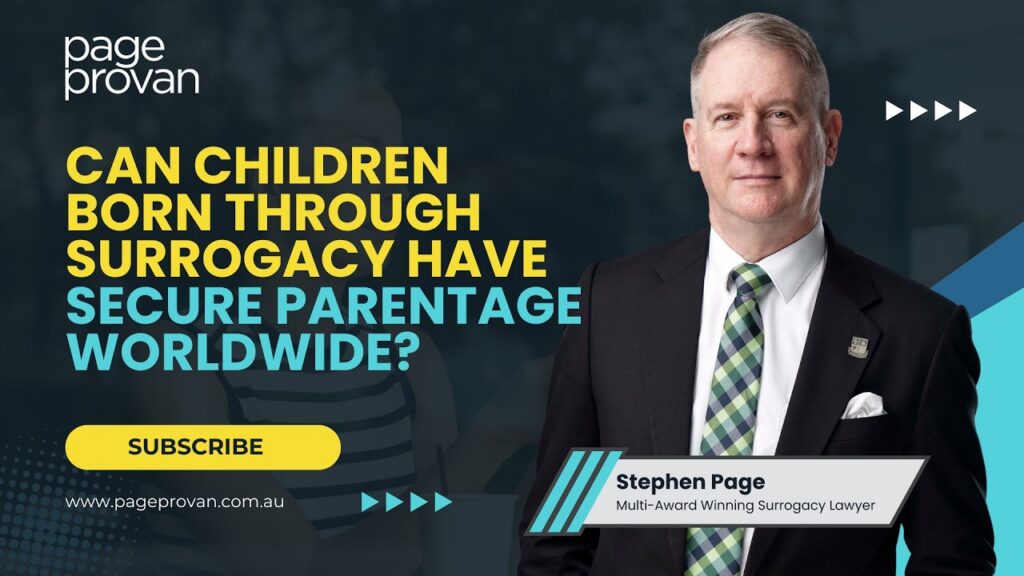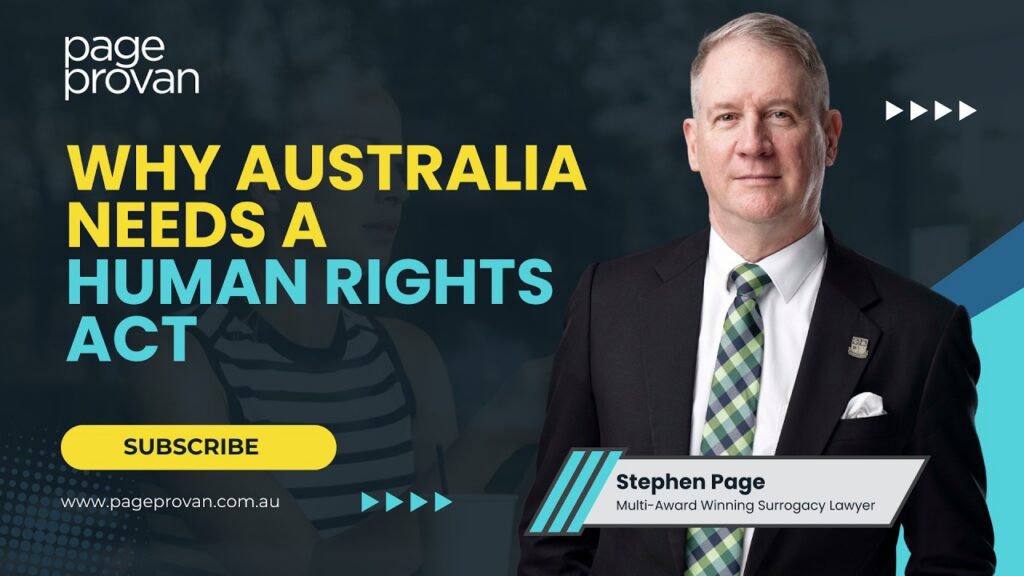Judge: court worried about child trafficking in surrogacy cases
The case, known as Fisher-Oakley and Kittur, involved a gay Australian expatriate couple who went to India for surrogacy. They were successful in obtaining orders from the court.
Justice Cronin declined to order the appointment of an independent children’s lawyer, and decided the matter on the first day in court- which would have led to a substantial costs savings for the couple involved.
His Honour made some pithy observations about commercial surrogacy:
This is an area where the Court has some disquiet. It is well known in the community that there are babies brought to various places around the world in international baby selling and trafficking. It is also said – and I think I can take judicial notice of this from some of the literature that I have read – those sorts of criminal elements involve the trafficker declaring themselves as the biological parent of a child and having the birth mother refuting or rejecting any involvement in the child’s life. It may not be prevalent in Australia, but it is known in other parts of the world.
A second reason why this Court needs to be cautious and scrutinise these arrangements carefully is the philosophical argument that children who are born to women under these circumstances can be seen to be either abandoned by their birth mothers or indeed crassly sold by their birth mothers. The Court is rarely given any information about the circumstances under which the child might otherwise live if it did not move from the birth mother to people such as the present applicants.
I know nothing about the financial circumstances that the mother in this particular case may have had arising out of this contractual arrangement. I do not know whether S Agency is an organisation profiting from the poverty and the problems that women in countries such as India and Thailand might face. That is not in any way to suggest that the applicants are anything other than responsible and very dedicated parents for the child. I stress again that the Court is raising these issues because it is concerned that it needs to be satisfied that this child is not caught in that web of horror and intrigue….
I draw little comfort in this particular case from the fact that the respondents have not participated. They clearly entered into a contractual arrangement and, reading the contractual arrangement, it is quite clear that they were to walk away and have nothing further to do with either the applicants or the child.Whatever things people say about the future and their intentions, one has to be somewhat cynical about just how those things will unfold for a child born into this commercial arrangement.
This is a new area for the law in an environment where science is far ahead of what lawmakers seem to be contemplating. I have no idea what this child will face in 15 years time if cultural issues arise or his issues about identity become a crisis. I have no idea what would happen in the event that the birth mother suddenly changed her mind and wanted to have some involvement in the child’s future.All of those questions remain unanswered. The Australian Government has not been concerned about the child’s travel movements because it presumably accepted the documents of the child’s birth and parentage at face value.












